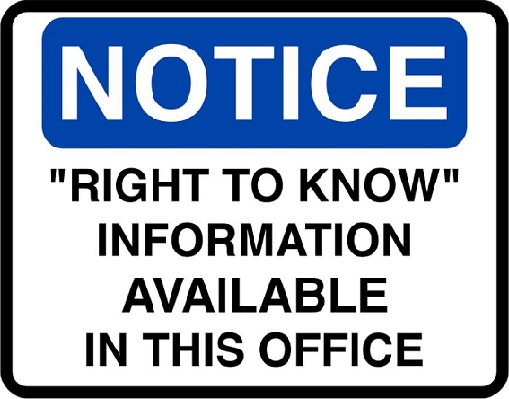All “Law Reading” and no play makes Skip a dull guy – so being in a bit of a funk, I’ve written little. However, it’s a New Year and time to power through the writer’s block (yeah, that’s the ticket – although it doesn’t quite sum up the mood the last few days). So, back to writing about RSA 91-A, NH’s Right To Know Law, and a citizen’s best tool in keeping those that are governing us on the straight and narrow.
Thus far, we got through less than I thought I would”
- Preamble
- Definitions
- Meetings Open To Public (clauses I & half of II)
So now onto the rest of 91-A:2. So what happens when you aren’t happy with how a meeting has been called or is being conducted? What is your recourse (or as lawyers say “remedy”)? That’s clause II-a that starts to bring the hammer down. It references later Clauses that we’ll go over later but here’s the text. As always, emphasis mine and I may do a bit of reformatting simply for readability:
II-a. If a member of the public body believes that any discussion in a meeting of the body, including in a nonpublic session, violates this chapter, the member may object to the discussion.
So, if they didn’t call the meeting correctly, went into a non-public meeting incorrectly, or did anything else that is not allowed by this RSA, object!
Sidenote: We are a Dillon’s Rule State and our Statutes strictly define what a subdivision of the State may or may not do. If what a Public Body wishes to do isn’t found in a law, they can’t do it. Period. So if it isn’t specifically outlined in RSA 91-A, it is illegal.
If the public body continues the discussion despite the objection, the objecting member may request that his or her objection be recorded in the minutes and may then continue to participate in the discussion without being subject to the penalties of RSA 91-A:8, IV or V. Upon such a request, the public body shall record the member’s objection in its minutes of the meeting.
This basically states that you have to be willing to stand up and voice your opinion. When you do so, do what Saul Alinsky said to do in Rule #4: “Make the enemy live up to its own book of rules”. Make them PROVE that what they are doing IS in RSA 91-A. Get them on record and in the minutes which is EXACTLY what the RTK Law requires:
If the objection is to a discussion in nonpublic session, the objection shall also be recorded in the public minutes, but the notation in the public minutes shall include only the member’s name, a statement that he or she objected to the discussion in nonpublic session, and a reference to the provision of RSA 91-A:3, II, that was the basis for the discussion.
A:3 deals with NON-PUBLIC meetings which are tightly controlled.
With that last bit, we’re getting there but not quite. The Above really is important – there can be no wiggle room allowed. After all, if “the window is allowed to be broken”, people are willing to start violating the next bigger “thing”. It is easier to shame them earlier than it is to fix it much later with far bigger violations as habits have been formed. Call out the error, get it recorded, and then refer back to it often until they get it right.
II-b.
(a) If a public body maintains an Internet website or contracts with a third party to maintain an Internet website on its behalf, it shall either post its approved minutes in a consistent and reasonably accessible location on the website or post and maintain a notice on the website stating where the minutes may be reviewed and copies requested.
This SHOULD be self-explanatory but there are those that have, in the past, trying to be Captain Blackbeard’s and try to hide the treasure minutes. “Consistently” is the operative word – same place, posted at the same time, meeting after meeting. There is nothing more irritating inducing than “it was here LAST time – where’d they put it NOW?!?!?!?!?!”
Frankly, I think the writers of the Law got the above and the next part upside down – you POST the notice of the meeting before the meeting and then post the minutes from the meeting afterwards:
(b) If a public body chooses to post meeting notices on the body’s Internet website, it shall do so in a consistent and reasonably accessible location on the website. If it does not post notices on the website, it shall post and maintain a notice on the website stating where meeting notices are posted.
Again, our happy word is “Consistent” – which is the whole purpose of RSA 91-A is to put a consistent framework in place to enforce that consistency. And note that last bit – if you use a website, you’re stuck with it and can’t get rid of it. You know, like the monies for a bandstand that Gilford NH accepted back last century – you spent it and now it will be there forever (ditto “the sidewalk to no-where”). While it makes sense in this day and age, it just had to be said because there are always there that are trying to game the system.
I’m going to stop here as RSA 91-A: III has several parts that I don’t want to break up.
Previous Posts:
- Part 1 – What is the Purpose of a Right To Know demand?
- Part 2 – Why is it Constitutional?
- Part 3 – What are the Terms (Definitions)?
- Part 4 – OK, there are Meetings and then there are Meetings…
- Part 5 – When are Meetings a meeting and when CAN”T you go but WHEN can you go?
And ancillaries:
